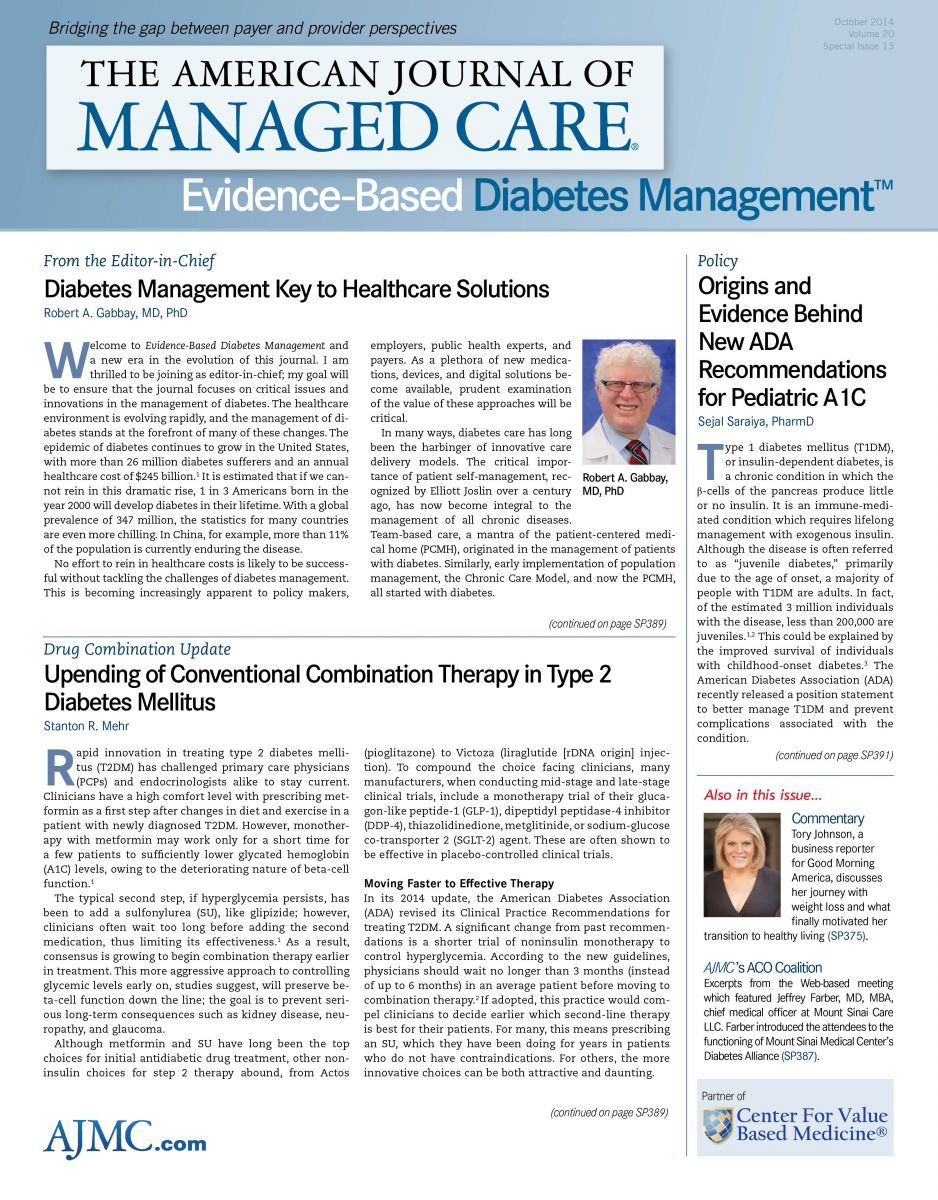- Center on Health Equity & Access
- Clinical
- Health Care Cost
- Health Care Delivery
- Insurance
- Policy
- Technology
- Value-Based Care
USPSTF Ruling, Medicare Policy Signal Shift in Linking Chronic Disease, Behavioral Health
Two policy announcements in August, 1 from Medicare and another from the US Preventive Services Task Force (USPSTF), signal a shift toward understanding that America’s battle with obesity and diabetes is not only a medical but also a behavioral health problem, and must be treated as such.
First, CMS announced that it would start paying primary care physicians $42 a month per patient next year to coordinate the care those with chronic diseases that include diabetes, heart disease, and depression. According to news accounts and The Advisory Board Company, the fee is contingent upon practices addressing patients’ psychological and social needs.1
Then, the USPSTF followed up with a recommendation that obese or overweight patients with cardiovascular disease receive intensive behavioral counseling. The recommendations, published in the , apply to adults age 18 or older and carry a “B” recommendation, which means that it is a moderate benefit that should be offered to most patients.2
The policy announcements support the findings of a study published in August 2014 by which studied practices that spent extra time with Medicare patients upfront in an effort to avoid medical costs later.3 The practices capped patient loads and featured many elements that will be required under the new CMS reimbursement model — such as 24-hour access and coordinated care. The study showed the model produced better health outcomes and cost savings for Medicare Advantage.
The Affordable Care Act requires that all preventive services rated B or higher be covered, and obesity screening and counseling coverage is already included for all but a few grandfathered plans. However, such counseling typically ends a preset number of sessions.
Reimbursing primary care doctors (PCPs) is likely to make bigger difference. Many PCPs often act as care coordinators without compensation, at a financial loss. The inability to be compensated for such coordination tasks is seen as a contributing factor to the shortage of PCPs nationwide, and to overcrowding in practices. Not only is the situation unpleasant for doctors and patients, but it is viewed as a contributor to the spiraling cost of healthcare.References
1. Pear R. Medicare to start paying doctors who coordinate needs of chronically ill patients. The New York Times. http://www.nytimes.com/2014/08/17/us/medicare-to-start-paying-doctors-who-coordinate-needs-of-chronically-ill-patients.html. Published August 17, 2014. Accessed September 2, 2014.
2. LeFevre ML Behavioral counseling to promote a healthful diet and physical activity for cardiovascular disease prevention in adults with cardiovascular risk factors: US Preventive Services Task Force recommendation statement. Ann Intern Med. [published online August 25, 2014]. doi:10.7326/M14-1796.
3. Musich S, Klemes A, Kubica MA, Wang S, Hawkins K. Personalized preventive care reduces healthcare expenditures among Medicare beneficiaries. Am J Manag Care. 2014;20(8):613-620.

Quality of Life: The Pending Outcome in Idiopathic Pulmonary Fibrosis
February 6th 2026Because evidence gaps in idiopathic pulmonary fibrosis research hinder demonstration of antifibrotic therapies’ impact on patient quality of life (QOL), integrating validated health-related QOL measures into trials is urgently needed.
Read More
Exploring Pharmaceutical Innovations, Trust, and Access With CVS Health's CMO
July 11th 2024On this episode of Managed Care Cast, we're talking with the chief medical officer of CVS Health about recent pharmaceutical innovations, patient-provider relationships, and strategies to reduce drug costs.
Listen
Building Trust: Public Priorities for Health Care AI Labeling
January 27th 2026A Michigan-based deliberative study found strong public support for patient-informed artificial intelligence (AI) labeling in health care, emphasizing transparency, privacy, equity, and safety to build trust.
Read More

